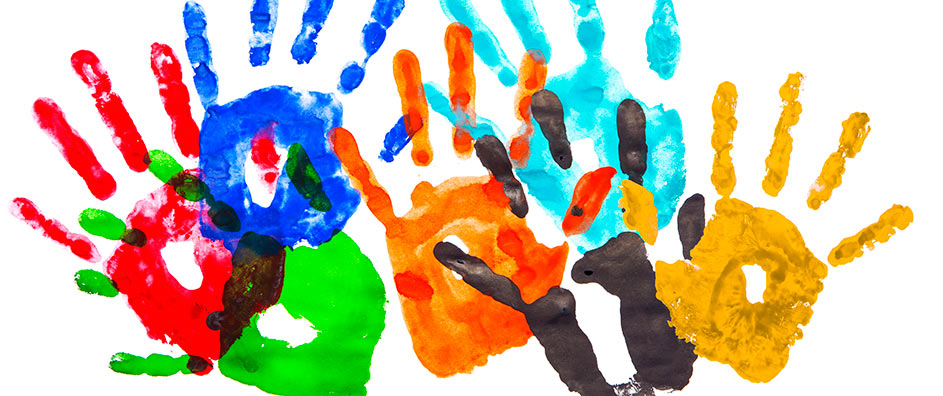In a world where discussions around human rights violations often dominate headlines and ignite fervent debate, the exploration of their underlying causes rarely receives the attention it merits. The Bahá’í teachings provide profound insights into these root causes, revealing a perspective that transcends mere surface-level observations. This examination invites individuals to ponder the complexities of human behavior, societal structures, and spiritual principles that contribute to the perpetuation of these violations.
To unravel the intricacies of human rights violations, it is essential to adopt a holistic approach. Root causes are frequently enmeshed in multifaceted layers of systemic inequities and ingrained biases. The Bahá’í teachings illuminate the significance of unity and the interdependence of humanity. At its core, the principle of oneness suggests that the disintegration of human rights is not merely a task for governments or organizations, but rather a collective responsibility.
The first step towards understanding these violations lies in scrutinizing societal norms and cultural narratives that often underpin discriminatory practices. Many societies have historically upheld hierarchies based on race, gender, or economic status. The Bahá’í perspective urges an examination of how these entrenched systems promote inequality and injustice. Within households, educational institutions, and communities, implicit biases can manifest as discrimination, which cumulatively contributes to the erosion of human rights on a broader scale. Education plays a pivotal role in dismantling these harmful structures, as it fosters open-mindedness and encourages individuals to challenge complacency towards injustice.
Furthermore, the teachings articulate that true justice and equity cannot emerge without addressing the inherent spiritual and moral deficits within individuals. They highlight the necessity for a transformation of the heart. Human rights violations are often the result of a disassociation from our collective humanity. When individuals permit selfishness, prejudice, and enmity to guide their actions, they inadvertently undermine the very fabric of society. The Bahá’í teachings assert that the cultivation of virtues—such as empathy, compassion, and selflessness—is paramount for nurturing a society where human rights are respected and upheld. Thus, the journey towards rectifying violations begins within each individual’s moral and ethical landscape.
Moreover, the Bahá’í philosophy emphasizes the influence of materialism and excessive individualism on the exacerbation of human rights abuses. Contemporary society, with its relentless pursuit of wealth and status, often prioritizes personal gain over communal well-being. This pervasive materialistic mindset fosters a disconnect from collective responsibilities, inciting behaviors that can lead to exploitation, oppression, andviolence. In contrast, the Bahá’í teachings advocate for altruism and the betterment of the collective whole. When individuals prioritize the welfare of others, the likelihood of human rights violations diminishes significantly.
As we delve deeper into societal structures, the Bahá’í teachings point to the significance of governance and social justice. Effective governance, characterized by transparency, accountability, and inclusion, is crucial for safeguarding human rights. The teachings advocate for participatory governance models that genuinely reflect the voices and needs of all members of society, particularly marginalized communities. A system that honors diverse perspectives will inherently foster peace and stability, ultimately diminishing the prevalence of human rights violations.
Furthermore, a critical aspect of addressing the root causes of human rights abuses involves international cooperation and global solidarity. The Bahá’í teachings extend beyond national boundaries, emphasizing that all of humanity is interconnected. Efforts to combat human rights violations necessitate a global consciousness that recognizes shared responsibilities and encourages collective action. Through dialogues and partnerships, nations can work towards establishing global norms that respect and protect human rights universally.
It is imperative to acknowledge that understanding the root causes of human rights violations is not a solely academic endeavor; it is deeply personal. Each individual carries the capacity for change, making reflection upon their own attitudes and behaviors essential. The systematic rights of others cannot be championed unless one reconciles with their inner convictions and appreciates the diversity inherent in humankind. The Bahá’í teachings inspire individuals to step beyond self-interest and to foster an ethos of unity—recognizing every human being as a precious part of a vast tapestry.
The implications of these transformative insights are profound. By shifting the focus away from punitive responses to human rights violations towards proactive community-building and personal development, societal attitudes can gradually evolve. The Bahá’í approach invites a contemplation of not just the “why” and “how” of human rights violations but underscores the importance of envisioning a harmonious global society where such violations become obsolete.
By embracing the imperatives outlined in Bahá’í teachings, individuals can embody the principles that lead to genuine change. The journey toward uncovering the root causes of human rights violations is ongoing, and it requires unwavering commitment, courage, and most significantly, the willingness to see the world—and one’s role within it—through a lens of compassion and understanding. Each step taken towards fostering a more equitable society illuminates the path for others, creating a ripple effect that transcends borders and ideologies. In this endeavor, the collective vision of humanity’s oneness can pave the way for a future where human rights are not only recognized but cherished and protected as universal prerogatives.
